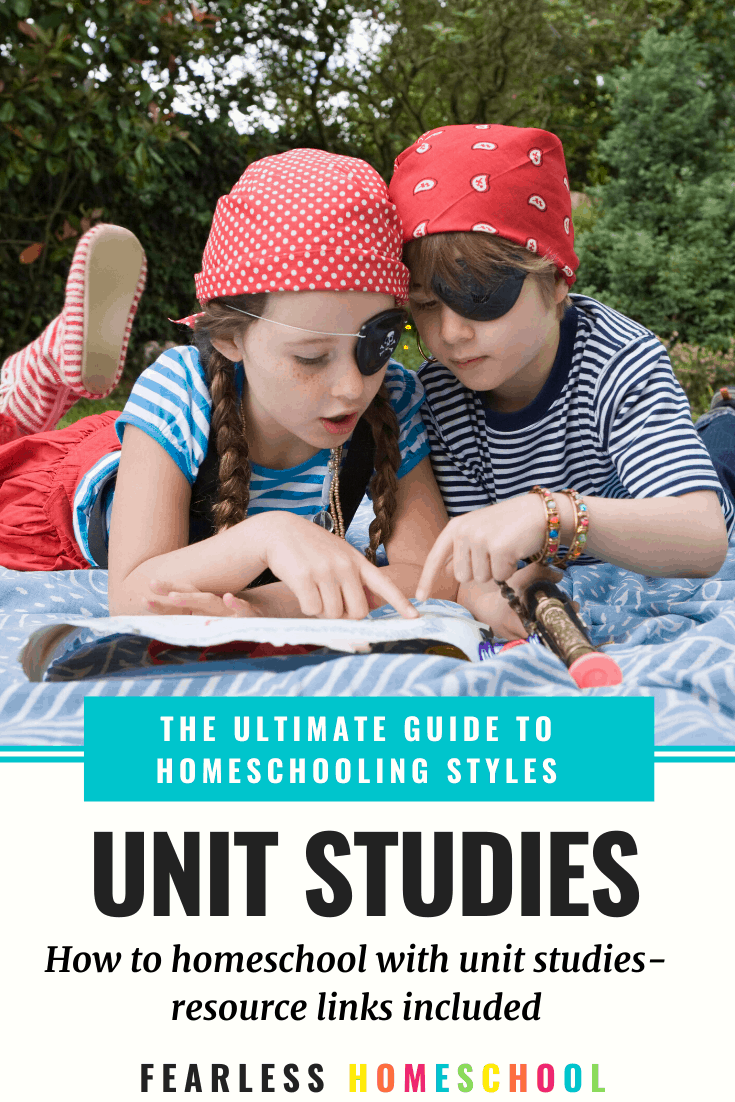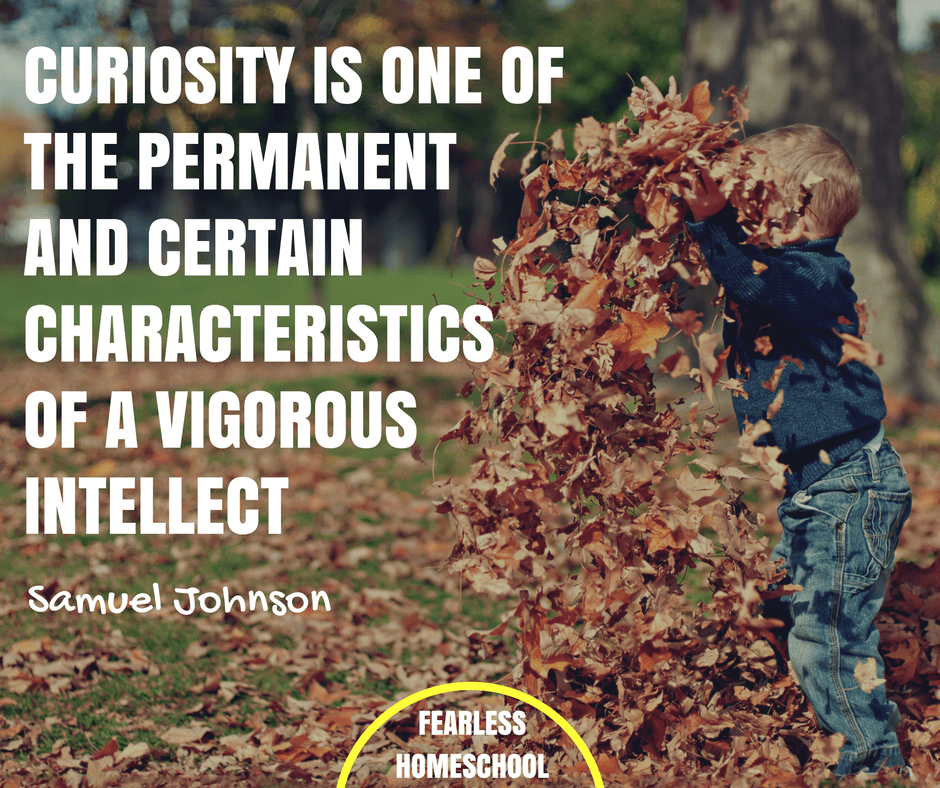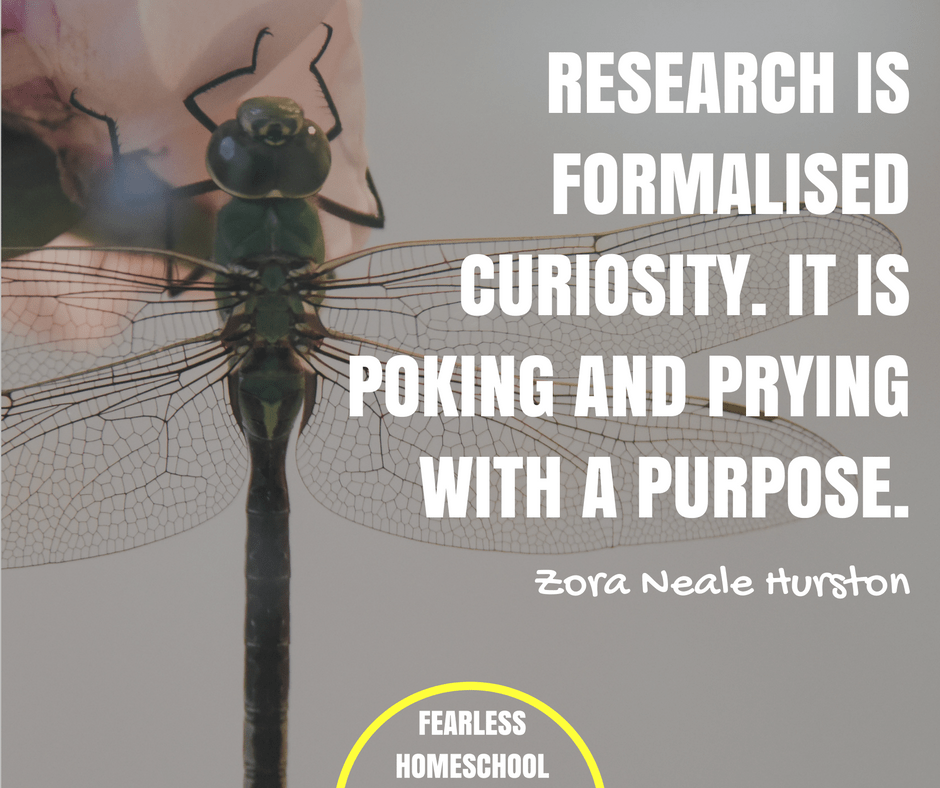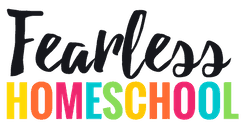Welcome to the fifth post in the Ultimate Guide to Homeschooling Styles series! Click here to view the rest of the series.

Heard about unit studies but not sure what they are?
Unit studies involve choosing a theme, then organising work covering subject areas around that theme. A theme could be a classic novel, a topic such as France, stingrays or trucks, or a historical period. They can be as brief as a week, or last for months. You can do one topic at a time or switch between a few. They’re a great way to learn in depth about a topic and have your child delve deeply into (and satisfy) their interests and curiosity.

An example of a Unit Study on Bread
Bread. Doesn’t sound very interesting to most people, right? But organising a unit study around it proves surprisingly easy! Here are some ideas for activities related to bread – there’s plenty more.
- Research the history of breadmaking. Write an age-appropriate summary of it
- Make a variety of yeasted and unyeasted breads
- Capture your own sourdough culture and make sourdough bread
- Research and make breads specific to different historical periods, cultures or countries. Explore reasons why different breads have developed in different areas
- Visit a bakery – a modern one and an artisanal one if possible. Compare the different methods and appliances used
- Make a poster illustrating different types of bread, or a bread timeline
- Investigate the chemistry behind bread and yeasts
- Reading quality stories and poetry involving bread – Terry Pratchett’s dwarf bread (can be used as a weapon) comes to mind, as does the lembas bread in Lord of the Rings or damper in many Australian history stories and poems. Read the Gingerbread Man to little ones!
- Investigate hardtack and how and when it has been used in history. Make some!
- Write a bread recipe book
- Put on a bread feast or tasting session for friends or family
As you can see, any topic area has the potential to involve learning in multiple subject areas. Reading, writing, science, technology, history, maths, geography, botany, art and cooking are all easily covered in the study of bread. The activities are varied and interesting while being unified by a central theme.
Finding Unit Study Resources
Unit studies may be one of the cheapest methods to DIY. Library resources are a great first stop. From there, internet resources can be used to investigate further. Maybe a science kit or equipment will be needed, or ingredients for cooking, or phone calls to organise a related outing or a chat to an expert (the local homeschool group may appreciate being involved in these too).
Pre-made unit studies are available, but it can be hard to find the right resources as recommended (such as a specific book list about plants). It can be easier to organise your own, based around resources you own or have available at your local library.

The Good Points
- Unit studies encourage in-depth research and learning
- They’re fun
- They’re easily affordable
- They’re excellent for families with multiple age groups, as the tasks can be adapted to abilities
- They integrate all subject areas, easily enabling children to see the connection between areas of knowledge
- They develop research skills due to the wide-ranging exploration needed
- Length can be adapted to suit interest
The Not-So-Good-Points
- Content is highly focussed on, and very well addressed, but specific skills aren’t. These may need to addressed separately. Many homeschoolers cover maths separately, and may add specific topics like grammar or science too.
- If using pre-made unit studies it can be difficult and time-consuming to find the specific resources recommended
Further Resources
The Lazy Homeschooler’s Guide to Unit Studies – a seriously amazing course that will walk you through all stages of planning and delivering unit studies. You’ll learn all about unit studies and how they work (including how to cover all the curriculum areas), how to choose topics, layer learning with easy activities, and even how to record and document clearly and easy. There are plenty of PDFs and printables to get you started easily. I highly recommend this if you’re keen to use unit studies.
Pre-made Unit Studies and lapbooks based on classic literature
More unit studies based on classic literature
Free Unit Studies about Celebrities from Unschool Rules
Over 100 books made into movies by grade level from Adventures in Mommydom – a great starting point to build your own unit studies
Want stacks of great ideas for unit studies, many of them free? Check out my Unit Studies board on Pinterest!
Follow Kelly | Fearless Homeschool’s board Unit Studies in Homeschooling on Pinterest.

Kelly, this is an awesome guide! What’s interesting is how things blend… our family of unschoolers did a ton of things that would be considered “unit studies” by almost any measure, just because we tended to pick an interest and do a lot with it! I bet the same is true for other homeschooling styles too – a lot of them draw from the benefits of unit study!
Thanks Joan! And yes, I agree – even though I’d call what my teens do ‘unschooling’ they’re essentially doing big interest-based unit studies.
I love unit studies. I am in the midst of making one based on the Little House in America books. We will explore life in those days. Plus we will cook meals that were mentioned by Ma or Pa. And we will also prepare big town maps of the States. One more thing is to do mini fact files of the entire family in question.
Other activities include making lists of facts about each character and so on. As part of the whole topic we will go to a local history museum. The museum is about life back then. Additionally we will do more.
Oh, we love those books! Sounds like lots of fun.